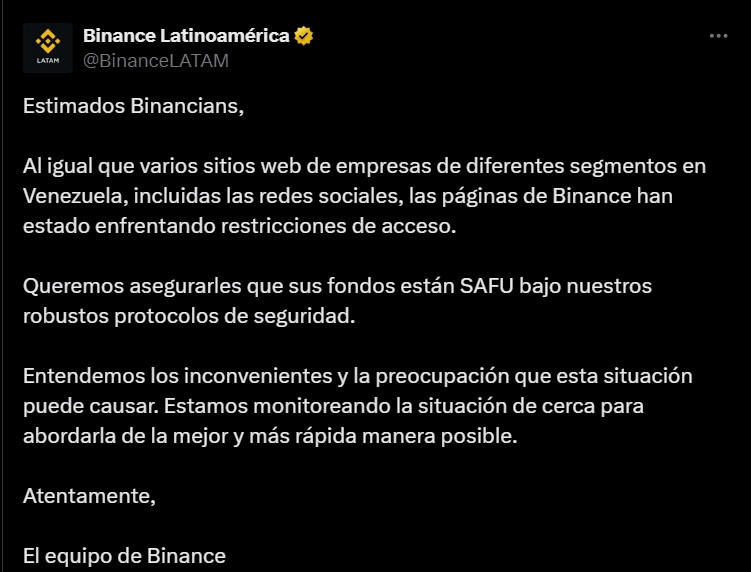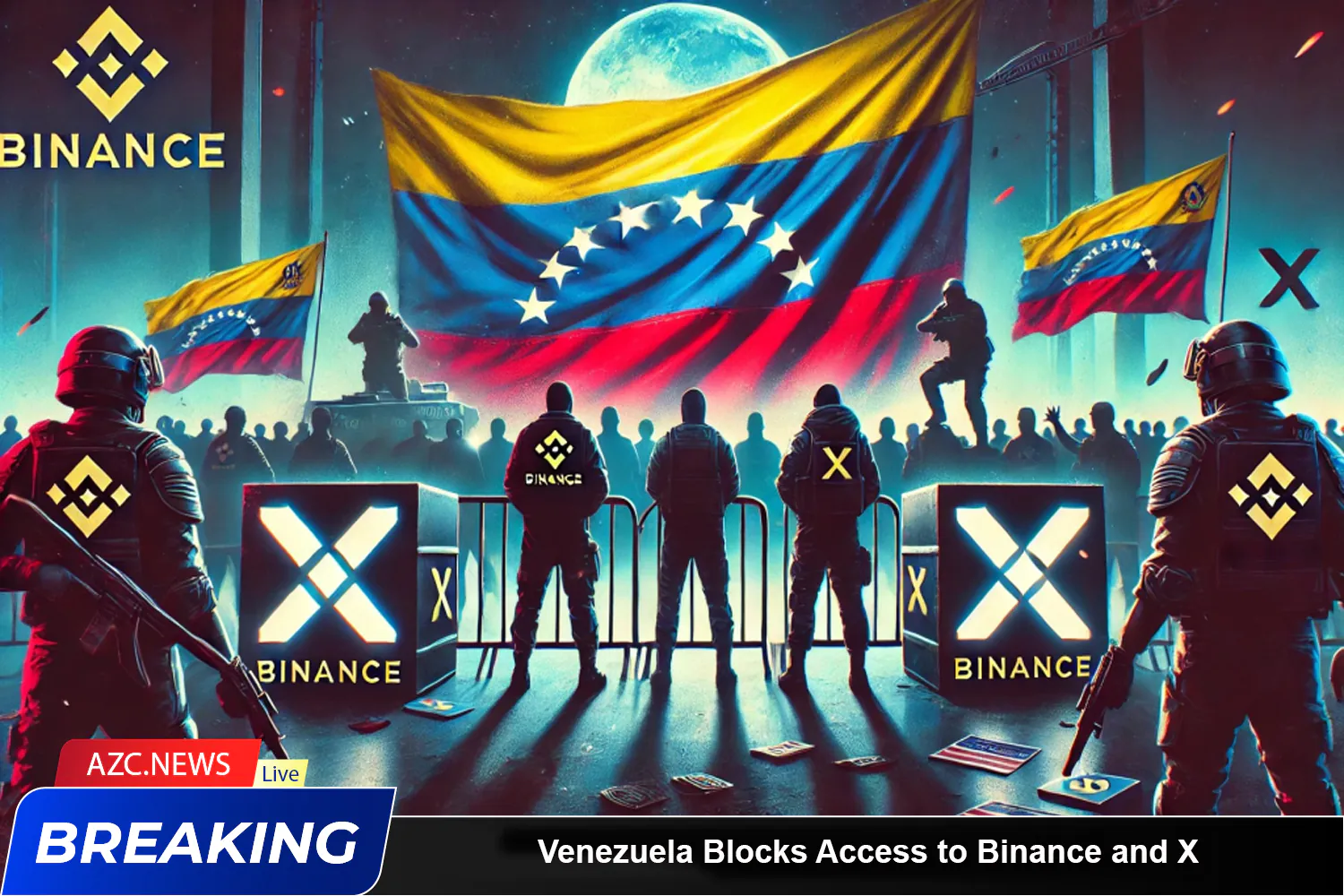On August 9, the local anti-censorship organization VE sin Filtro (Venezuela) posted on X that they “detected a DNS block on the cryptocurrency exchange Binance, affecting the normal operation of its website and mobile application.”
“Like several websites of companies from different sectors in Venezuela, including social networks, Binance’s pages have been facing access restrictions,” Binance’s Latin American-focused X account posted on August 10.
Binance assured that user funds remain safe, stating they are “monitoring the situation closely to address it in the best and quickest way possible.”

Binance’s peer-to-peer (P2P) service, where users can directly exchange cash for cryptocurrency with one another, is very popular in Venezuela as locals seek to avoid the highly inflated bolívar (Venezuelan currency).
VE sin Filtro recommended that Venezuelans use a VPN to circumvent the block.
The Binance block on August 9 came a day after Venezuelan President Nicolas Maduro announced in a televised speech that he had ordered the telecommunications regulator Conatel to ban access to X for ten days, according to Reuters.
Besides Venezuela, Binance also faces sanctions from various other countries, including Nigeria and the Philippines.
Related: Binance Delists Multiple Trading Pairs on Platform
Venezuela has witnessed widespread protests following the presidential election on July 28, where both Maduro and his opponent Edmundo González claimed victory.
The government-controlled electoral authority declared Maduro the winner with over 51% of the vote without releasing a detailed vote count. González claimed that printouts from voting machines collected by his party prove he won with nearly 70% of the vote.
The United States, the European Union, the United Kingdom, and several South American countries have not recognized Maduro’s claim to the presidency, with many calling for detailed vote counts to be released.






